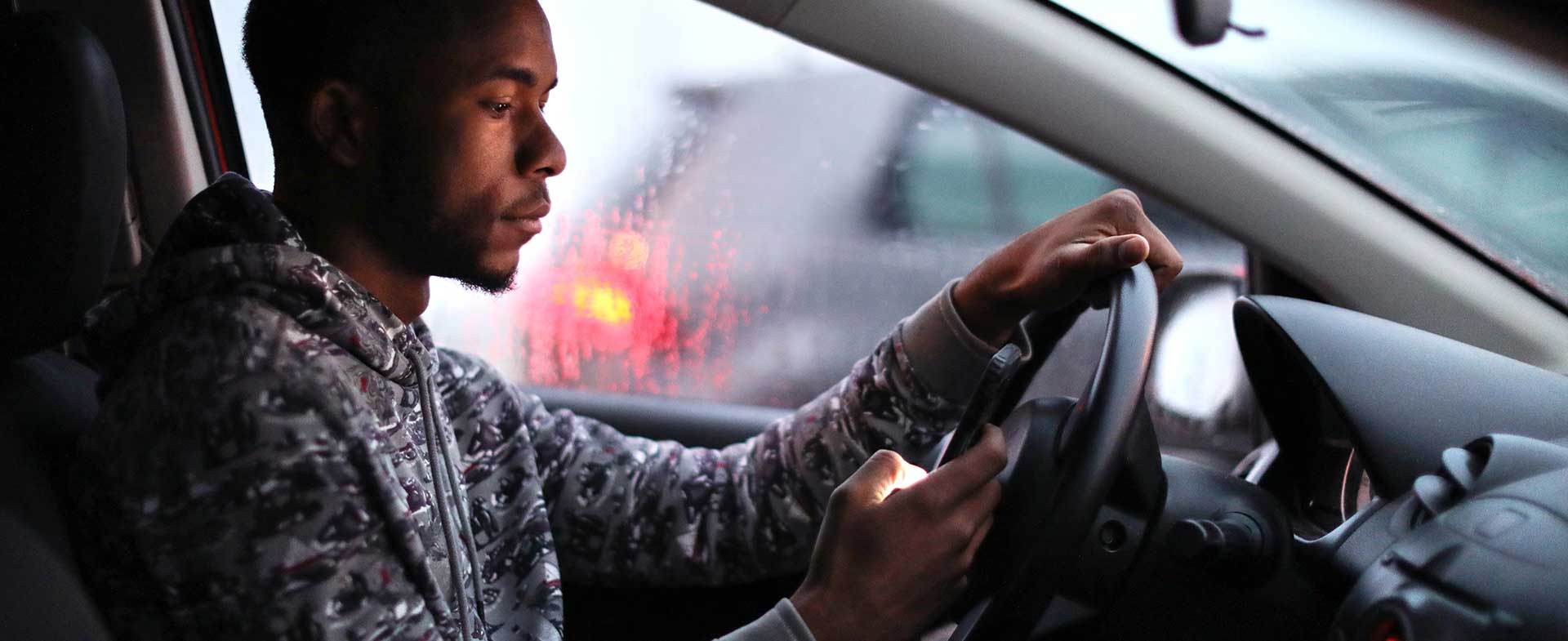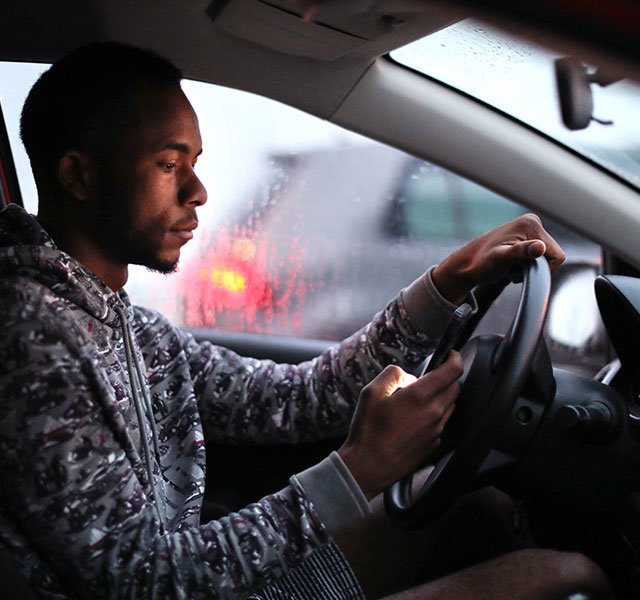In a time when we are so focused on staying connected to the world and our peers online, how much do you have to lose by sending a simple text? If you're behind the wheel, the risks are too great. In 2019, the National Highway Traffic Safety Association (NHTFA) reported that over 3,100 people died because of distracted drivers. While cell phones and texting are a big factor in distracted driving accidents, they aren’t the only things that can get in the way of you and safe travels to your destination.
When people think of distracted drivers, many picture teens distracted by texting and making careless decisions on the road. Kurt Kralovich, M.D., a trauma surgeon for Henry Ford Health, notes that adults are just as bad with distracted driving, if not worse.
“Adults have an overestimation of their abilities to drive distracted,” says Dr. Kralovich. “More years of driving does not make it safe or make you more qualified to drive distracted.”
The most common distracted driving activities include:
- Taking phone calls
- Texting
- Checking phone apps
- Disciplining children/interacting with other passengers
- Eating or drinking
- Adjusting radio or other dashboard controls
The 3 Types Of Driving Distractions
Chances are, you have driven distracted before. Maybe you didn’t pull out your phone or take a call, but there is more than one way to allow distractions to divert your attention from the road. The three different types of distracted driving include:
- Visual: Taking your eyes off the road
- Manual: Removing your hand from the wheel to eat, adjust volume, grab something, etc.
- Cognitive: Getting lost in your thoughts while driving
“Cognitive impairments are probably the most common form of distracted driving,” says Dr. Kralovich. “It is very easy to get lost in your thoughts when you drive.”
It could be as simple as trying to remember your grocery list as you are driving to the store. But the next thing you know, you are about to miss your exit and you have to merge two lanes over. That quick maneuvering done without checking mirrors and blind spots can be a major cause of serious accidents.
“The amount of time it takes to get in an accident due to distracting driving is just an instant,” warns Dr. Kralovich. “And the time that you have to compensate for a mistake is even smaller.”
How To Avoid Distracted Driving
- Familiarize yourself with the vehicle before driving. Adjust your seat, mirrors, temperature and music before shifting gears. If you are driving with a front seat passenger, ask them to make any further adjustments to the vehicle for you during the ride (for example, turning up or down the music or controlling a navigation device).
- Put your phone away or on do not disturb. Calls and texts can wait when you are driving. Eliminating this distraction will help avoid that need to check your phone when a notification comes up. If you need to make a call or send a text while on the road, safely pull off and park your car first.
- Wait until you are parked to eat or drink. Taking your hand off the wheel to eat on the go means you aren’t focused on the road. Not to mention the potential risks that can occur if you were to spill hot coffee on your lap mid-commute!
- Plan stops on longer road trips. Plan to pull off the road every few hours to allow both the driver and passengers to stretch, use the bathroom and check cell phones.
- Talk about driving safely. Whether you are driving or are a passenger, bring up the conversation about driving distraction-free. “If you feel uncomfortable bringing it up to the group, try to offer suggestions or share a reminder about group safety,” says Dr. Kralovich. “Say something like ‘I care about you and don’t want you to get hurt because you are distracted,’ or ‘Let’s get off at this exit so everyone can take a break and check their phones.’”
With COVID-19 and many people working from home, Dr. Kralovich says that emergency rooms and trauma centers have surprisingly seen an increase in the number of distracted driving-related accidents.
“People assume that because there are less vehicles on the road, there is less cause for injury, but you don’t need to get in an accident with another vehicle to cause serious injury to yourself or others,” Dr. Kralovich warns. “With people working from home, the world is your office. Make sure that you put your phone away, even when you are driving during work hours.”
To find a doctor or schedule an appointment, visit henryford.com or call 1-800-436-7936.
Dr. Kurt Kralovich is a critical care surgeon who sees patients at Henry Ford Hospital in Detroit.



